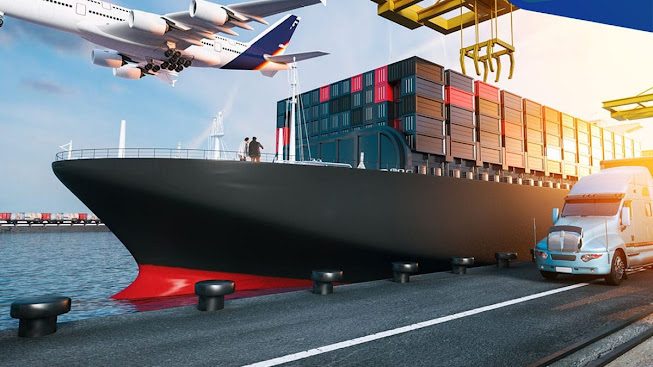Blockchain and IoT: Fortifying Cargo Data Security
The air cargo industry is a vast and intricate network of information exchange, involving countless stakeholders, cargo movements, and regulatory requirements. Ensuring the security and integrity of cargo data is paramount to the industry's success. In this blog post, we explore the potent combination of blockchain technology and the Internet of Things (IoT) in safeguarding cargo data, enhancing transparency, and fortifying the industry against fraud and data breaches.
 |
| Blockchain and IoT: Fortifying Cargo Data Security |
Cargo data encompasses a wealth of information, including cargo manifests, temperature records, customs documents, and more. Protecting this data is critical due to the following challenges:
- Data Tampering: Unauthorized changes to cargo data can lead to cargo theft, loss, or regulatory non-compliance.
- Data Breaches: Cargo data often contains sensitive information, and data breaches can have severe consequences, including financial losses and reputation damage.
- Regulatory Compliance: Compliance with customs and safety regulations requires accurate and secure cargo data.
The Power of Blockchain and IoT
Blockchain technology and IoT devices provide a robust solution to the cargo data security challenge:
1. Blockchain Technology:
- Immutable Ledger: Blockchain creates a decentralized and tamper-resistant ledger of cargo data, ensuring data integrity. Once data is recorded, it cannot be altered without consensus from network participants.
- Transparency: All stakeholders in the supply chain can view the same data, promoting transparency and reducing disputes.
- Smart Contracts: Smart contracts enable automatic execution of predefined actions when certain conditions are met, such as releasing payment upon cargo delivery.
2. Internet of Things (IoT):
- Sensors: IoT sensors can monitor cargo conditions in real time, including temperature, humidity, and location, and record this data on the blockchain.
- Tracking: IoT devices provide continuous cargo tracking, enabling stakeholders to monitor cargo movements and respond to deviations promptly.
Benefits of Blockchain and IoT in Cargo Data Security
- Data Integrity: The immutability of blockchain ensures that cargo data remains unchanged and reliable throughout the supply chain journey.
- Real-time Monitoring: IoT sensors provide real-time data on cargo conditions and location, allowing for immediate corrective actions.
- Transparency: All authorized stakeholders have access to the same data, reducing disputes and enhancing trust.
- Efficiency: Smart contracts automate processes like payments and customs clearance, reducing administrative overhead.
- Regulatory Compliance: Blockchain's transparent and traceable ledger aids in meeting regulatory requirements.
Real-World Examples
- IBM Food Trust: While initially designed for the food industry, IBM Food Trust showcases the potential of blockchain for supply chain transparency, including cargo data.
- Walmart's Use of Blockchain: Walmart uses blockchain technology to track the origin and journey of food products, which could be applied to cargo data in the air cargo industry.
Challenges and Considerations
- Integration: Implementing blockchain and IoT solutions requires integration with existing systems, which can be complex.
- Data Privacy: Protecting sensitive cargo data is crucial to comply with data privacy regulations.
- Cost: Initial setup costs and ongoing maintenance should be considered when adopting blockchain and IoT technologies.
Conclusion
Blockchain and IoT technologies are powerful allies in the battle to secure cargo data in the air cargo industry. By ensuring data integrity, promoting transparency, and automating processes, these technologies not only enhance cargo data security but also drive efficiency and trust across the supply chain.
As the air cargo industry continues to embrace digital transformation, the combination of blockchain and IoT is poised to become a standard practice for safeguarding cargo data, protecting against fraud, and ensuring the smooth and secure flow of goods around the globe. In a world where data is king, the air cargo industry is fortifying its crown with blockchain and IoT.



Comments
Post a Comment